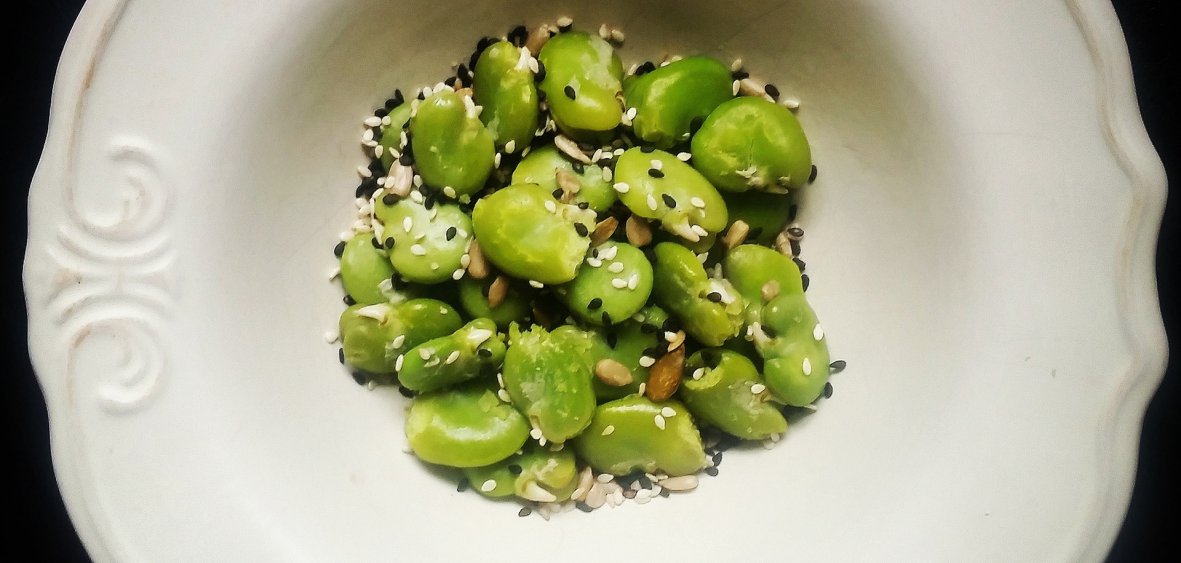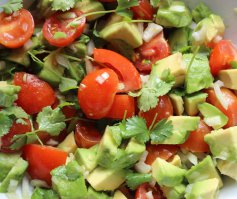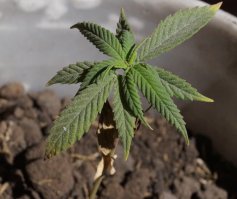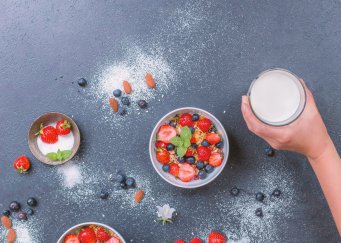Like other plants belonging to the same family as beans, broad beans have a lot of vitamins and microelements needed for the proper functioning of our body. In the first place it is necessary to mention amino acids, which are the equivalent of, for example, those contained in beef meat.
For pregnant women, broad beans are a great ingredient of the daily diet, because they contain folic acid, which is essential for the proper development of the foetus' nervous system. It is worth noting that 10 decabrams of this legume covers more than the daily demand for this microelement. Discover the other advantages of bob, we will also tell you who should be particularly careful about it.
Broad beans - properties and performance
Like other leguminous plants, broad beans contain many macro and microelements that the body needs. It also has medical qualities, so that it can be successfully used as a medicine. For example, it integrates the acids contained in the large intestine bile, which makes it possible to reduce the concentration of the harmful type of cholesterol in the blood. Its therapeutic properties are also seen in its high content of folic acid, which helps to develop the nervous system in the developing fetus, and also helps to treat blood diseases. You can also get to know its other pro-health attributes.
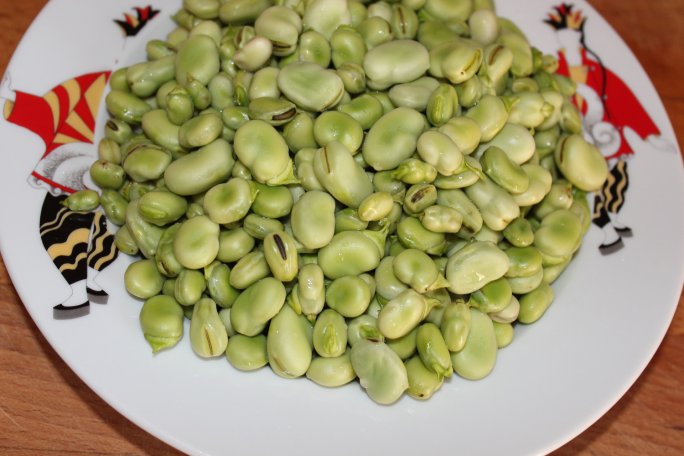
Beans and cardiovascular diseases
The large amounts of easily assimilable protein contained in the broad beans are a great equivalent to that contained in animal meat. Ten decabrams of broad beans contain more than seven grams of amino acids. Therefore, it can be successfully consumed by people whose ailments are connected with the cardiovascular system. Unlike meat, it does not contain saturated fatty acids, which are harmful to the body.
In addition, broad beans are a source of potassium and natural fibre, which regulates digestive processes, reduces the level of harmful cholesterol, which prevents the occurrence of hypertension. In addition, the broad bean contains a small amount of sodium.
Broad beans - calories
If we cook 10 decagrams of broad beans, we will have a high-calorie meal - that's as much as 110 kcal. However, the low content of fatty acids and the high dose of fibre make it suitable for people on a strict diet. Broad beans give you the ability to control your calories, because for a long time they provide a sense of filling your stomach. In addition, it contains a large amount of folic acid and B-group vitamins, which help in the proper functioning of the nervous system. Therefore, it can give the opportunity to survive moments of crisis during a slimming diet.
Pregnant broad beans
Broad beans can be eaten throughout pregnancy, but can be harmful to women with diabetes. Taking into account the recommendations of scientists dealing with the issue of proper nutrition, a woman in the blessed state should provide the body with 400 micrograms of folic acid.
According to the recommendations of specialists from the Institute of Food and Nutrition, a pregnant woman should consume at least 400 micrograms of folic acid daily. Vitamin B9 has a large share in the creation of new cells, thanks to which it is possible to counteract defects in the child's development in fetal life. 10 decabrams consists of as many as 423 micrograms of this microelement. As a result, it can satisfy more than a hundred percent of the body's daily needs for this ingredient.
However, in certain situations, there are reasons to avoid the consumption of broad beans. This is mainly the case with gestational diabetes. Broad beans have a high sugar content, which is why they are too much of a digestive challenge for a malfunctioning pancreas. That is why every diabetic must limit his or her consumption.

Anti-anaemia beans
Few people know that broad beans are also a good nutrient successfully used in the treatment of anaemia, both microcytic, associated with low presence of iron in the body and megaloblastic, which is a consequence of deficiency of vitamin B12 and folic acid.
Both iron and folic acid play an extremely important role in the synthesis of red blood cells, thanks to which oxygen molecules are transferred to all organs in the human body. Each of these shortages causes this activity to malfunction.
The broad bean contains large amounts of folic acid. Thanks to that, together with vitamin B12, supplied with other food, it will help in the therapy of anaemia, caused by their deficiencies in the body.
Beans - contraindications
However, it is not recommended to consume it to people who suffer from the urethral fundus. Unfortunately, their body tends to synthesize uric acid more than average. It accumulates in tissues and causes, among other things, painful swelling. Uric acid is the result of the transformation of purins, which are contained in large quantities in the bob. There are cases of various ailments associated with this overproduction, such as kidney stones as a result of the precipitation of sand and urolithiasis.
Broad beans can also cause severe anaphylactic shocks. It is also not recommended for people suffering from a rare disease such as favism, the so-called bean disease. Patients suffer from deficiency of glucose 6-phosphate dehydrogenase (enzyme G6PD). Unfortunately, this disease has a genetic basis, it is conditioned by a mutation in the X chromosome. In addition, this legume should be avoided by people whose digestive system does not work properly, because its consumption results in excessive gas secretion and thus flatulence. However, proper preparation of the previously mentioned delicacy may reduce or completely alleviate these ailments.
Cooking of broad beans
How to cook broad beans?
Dress up the broad beans by discarding any broken pods. In this case, the scent also plays an important role, which should be fresh and pleasant for the nose. The next step is to thoroughly rinse the grains in cold water. Then place it in the pot and pour water so that it is twice as much as the grains themselves. You can also add a bit of sugar to the taste, and after boiling - salt. Cover this delicacy in the pot while cooking and wait until it softens.
How much broad beans should I cook?
The heat treatment of broad beans depends on their growth period. Young beans are cooked much shorter, only about a quarter of an hour, while the older ones up to half an hour.
How to cook the broad bean so that it does not cause bloating?
Pour the broad beans into a pot and pour boiling water - leave in this form for about 60 minutes. The next step is to pour out the water and boil the seeds in new cold water with the addition of salt (as in the recipe above).
Broad beans - regulations
Barley salad with broad beans and eggs
- 1/2 glass of barley
- 25 dag beans (young or frozen)
- 4 eggs
- 1 small red onion
- bunch of herbs: parsley, chives, coriander, mint, dill
- oil
- freshly squeezed lemon juice
- freshly ground black pepper
- salt
The grains of the bunch must first be sorted - we choose only the most beautiful ones. Then place it in the pot, rinse and pour water, leaving it for more than two hours. Once the specified time has passed, it should be strained off. The next step will be to bring to a boil over a glass of water with the addition of olive oil and salt. Add the groats to the boiling water and boil them until they are no longer hard, i.e. about a quarter of an hour. Then leave it until it is too hot to eat.
Grains of broad beans should be thrown into water with salt and the cooking process should continue until the broad beans are soft.
Boil the eggs hard, then cut into quite large cubes. Traditionally, cut the onion into so-called feathers and chop the herbs. Groats, eggs and broad beans should finally be mixed with lemon, salt and pepper. Serve with a portion of tzatziki sauce, for example.

